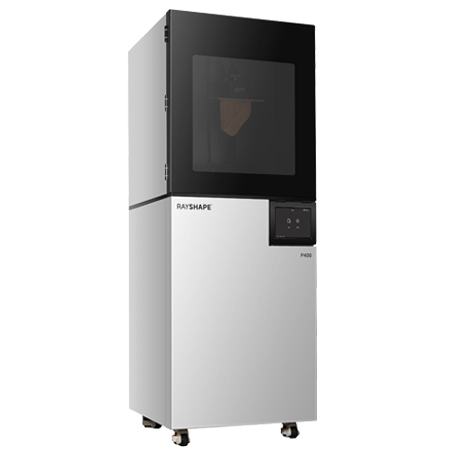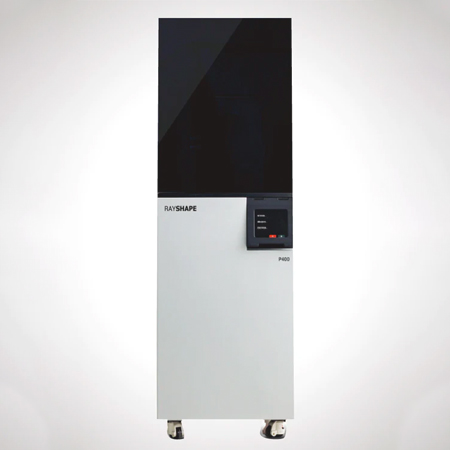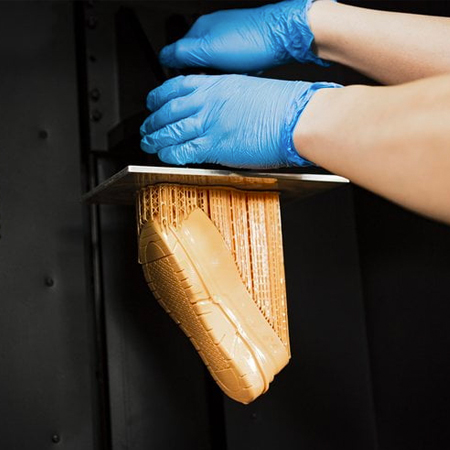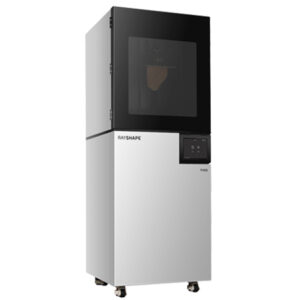RAYSHAPE, a China-based company, is dedicated to developing resin 3D printers that cater to the diverse needs of various industries. With a focus on user-friendliness, the manufacturer provides comprehensive solutions for 3D printing, manufacturing, and software development. Their main areas of application encompass the dental sector, mechanical engineering, electronic components, education, and cultural and creative industries, among others. Among their notable products is the P400 Series, consisting of the P400, P400 HD, and P400 UHD resin 3D printers, all based on 4K DLP (Digital Light Processing) technology.
Key Features of the P400 Series
RAYSHAPE’s P400 Series is specifically designed for mass production of final parts. These printers incorporate the company’s cutting-edge technology, offering a high projection resolution of up to 3840×2160 pixels. The properties of all three 3D printers are identical, with the only variation being in the maximum print volume and pixel size:
- P400 – With a maximum manufacturing volume of 250 x 140 x 395 mm and a pixel size of 65 µm.
- P400 HD – With a maximum production volume of 192 x 108 x 395 mm and a pixel size of 50 µm.
- P400 UHD – With a maximum build volume of 125 x 70 x 395 mm and a pixel size of 32.5 µm.
This line of 3D printers features a high-powered hot air system capable of heating the chamber temperature to 60°C in as little as 10 minutes. This enables the printing of high molecular weight and high viscosity photosensitive resin, ideal for achieving exceptional 3D printed parts. Notably, the performance of these parts can seamlessly transition from functional prototyping to end-use applications.
RAYSHAPE’s P400 Series showcases their commitment to delivering advanced resin 3D printing technology tailored to meet the demands of various industries. With their high resolution, efficient production volumes, and ability to produce end-use parts, these printers offer a valuable solution for companies seeking precision and reliability in their 3D printing processes.




